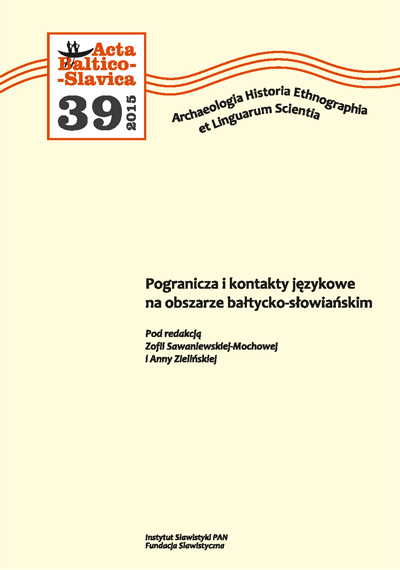
XXI a. pradžios lietuvių tarm<ės: geolingvistinis ir sociolingvistinis tyrimas. Žemėlapiai ir jų komentarai, red. D. Mikulėnienė, V. Meiliūnaitė,
XXI a. pradžios lietuvių tarmės: geolingvistinis ir sociolingvistinis tyrimas. Žemėlapiai ir jų komentarai, red. D. Mikulėnienė, V. Meiliūnaitė,
Keywords: dialectology; Lithuanian dialectology; geolinguistics
This text is a review of the Lithuanian language monumental work entitled XXI a. pradžios lietuvi tarmės: geolingvistinis ir sociolingvistinis tyrimas. Žemėlapiai ir ju komentarai published in Vilnius in 2014. It is the result of long-lasting studies by famous linguists conducting research on the Lithuanian dialects, on the Polish language of the Northern Borderlands and on the Belarusian and Russian languages in Lithuania. The publication presents some theoretical aspects of contemporary dialectological research in Lithuania, geolinguistic research in Lithuania, geolinguistic situation of the Lithuanian dialects in the 21 century and the optimisation of the eld study points, description of other languages and dialects spoken in Lithuania (the Polish and Russian languages, the Belarusian dialects) and the dynamics of dialectal changes. The publication under review is of paramount importance for the Lithuanian dialectology – not only enormous and valuable dialectal material was collected but also its professional linguistic analysis was carried out.
More...